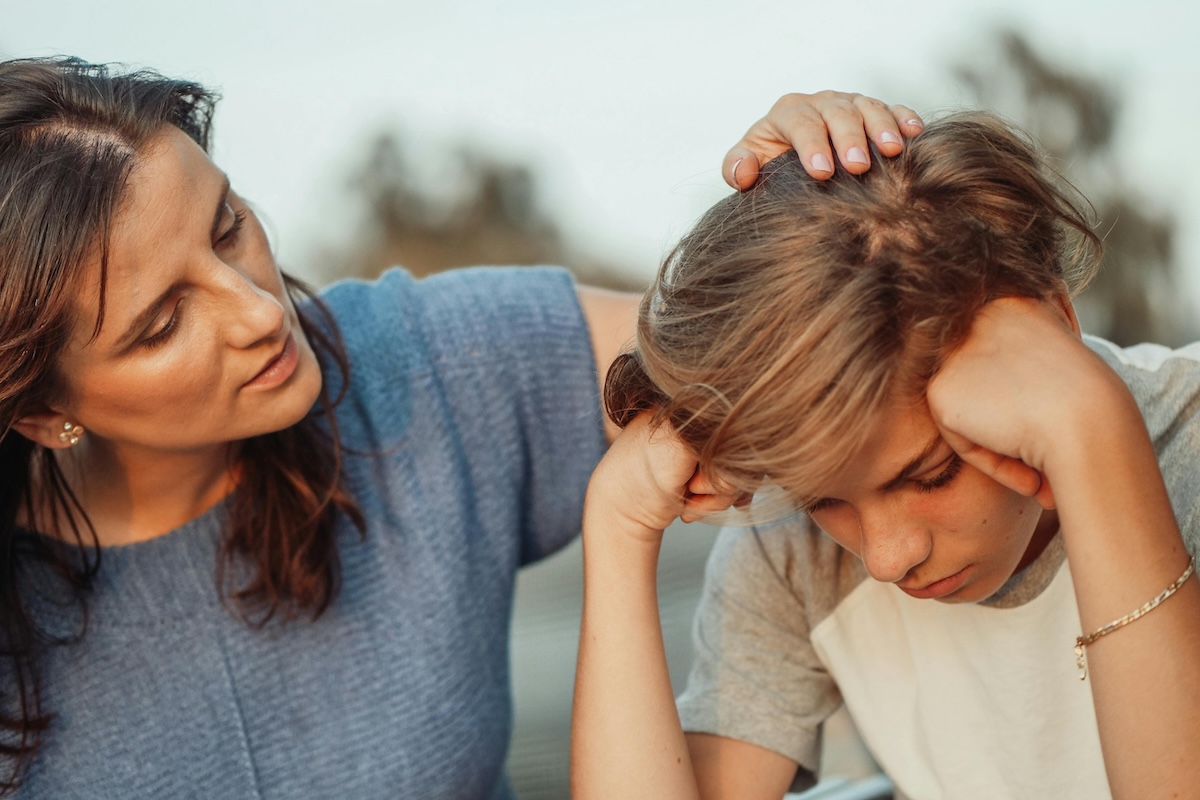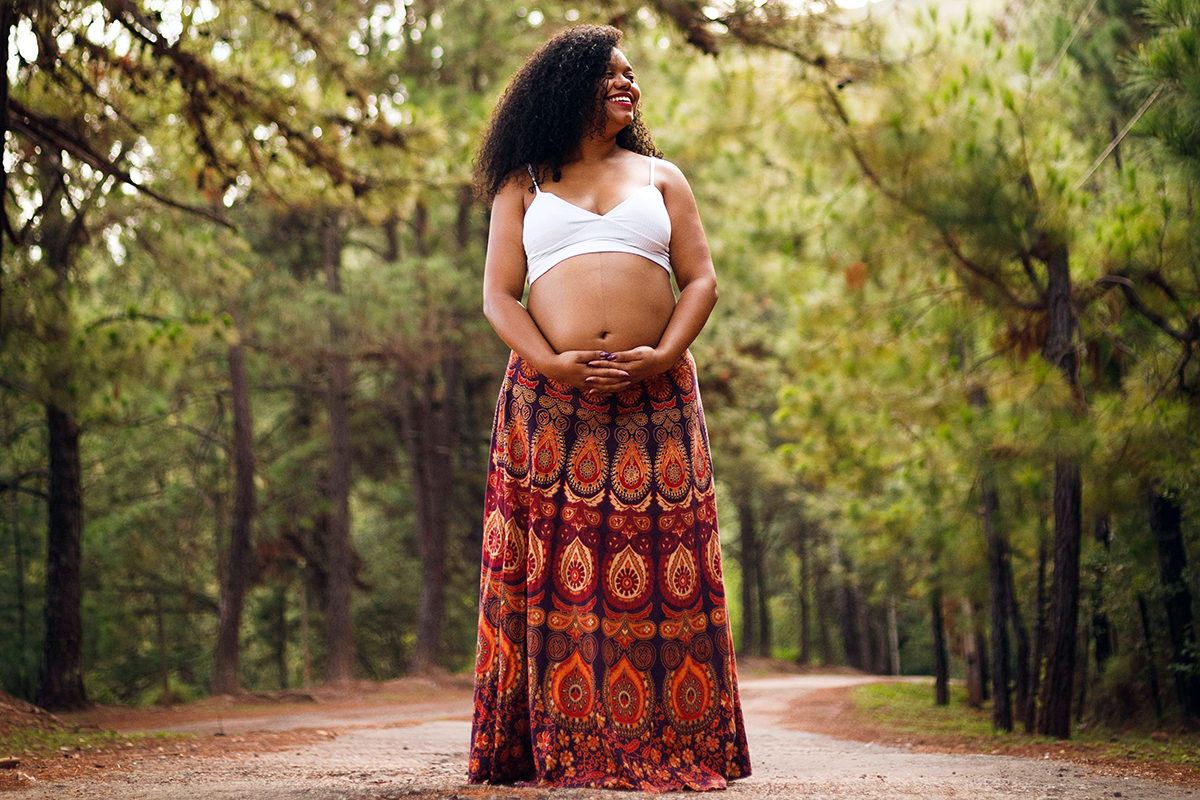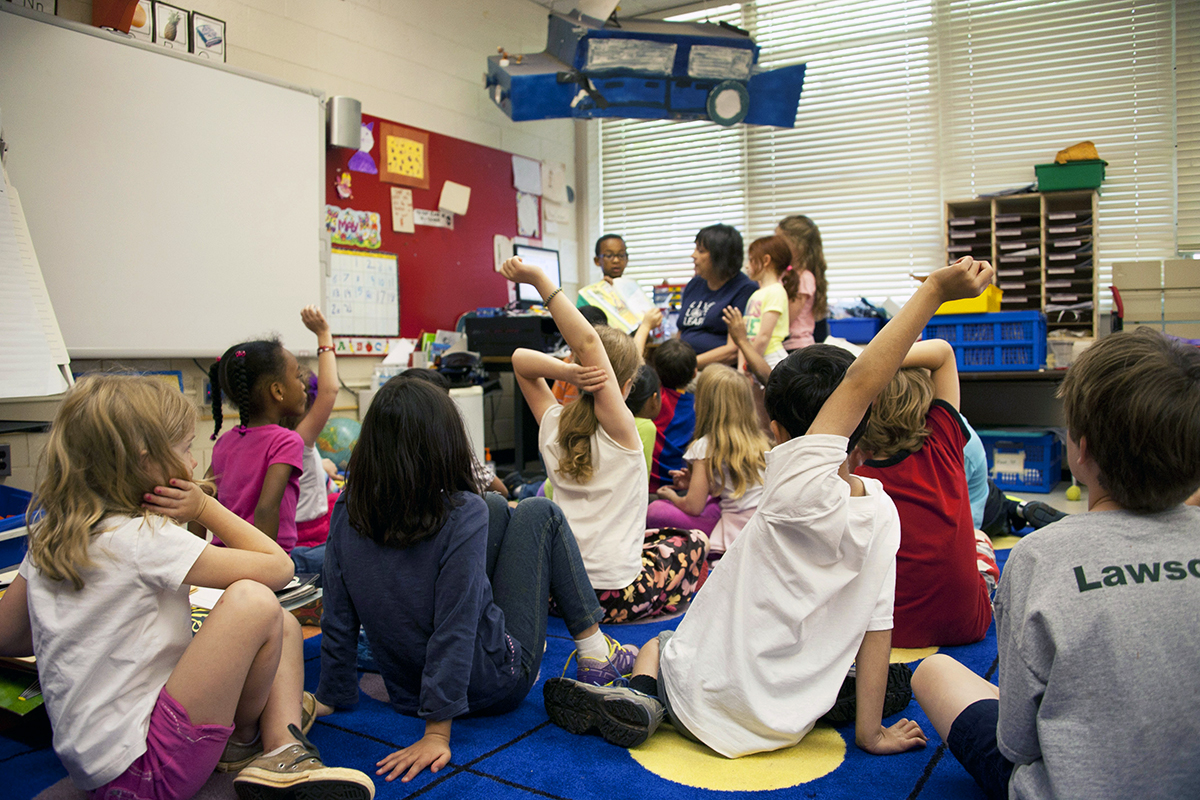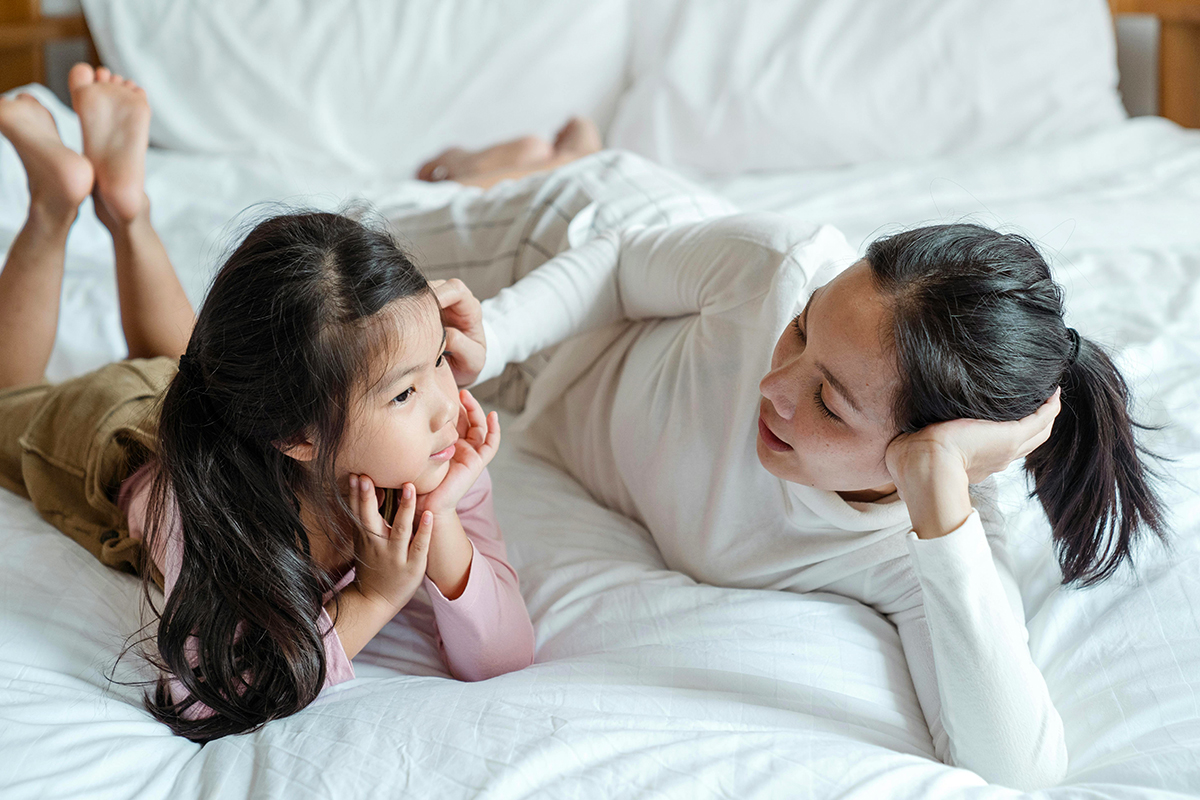We relaunched the new and improved ParentData podcast one year ago today, and to celebrate, I’m answering all of your burning questions.
If you follow my Instagram, @profemilyoster, you’re familiar with my Wednesday Q&As. On those, I post a question box, people ask their questions, and I choose which one to answer. I usually try to choose things that are entertaining or interesting or something that it seems like everyone is asking.
So over the past couple of weeks, we asked readers, listeners, and Instagram followers alike to submit their questions. And on today’s episode, I answer them in real time.
Here are three highlights from the episode:
QUESTION 1
Is it okay to take melatonin while pregnant to combat that pesky pregnancy insomnia?
But we also know that melatonin is transmitted to the fetus. Many people do take low doses of melatonin during pregnancy. If there were significant risks, we would obviously know about that. And so that, for me, I think is pretty reassuring, and sleep is important for your health.
But I guess my more general point here is, sometimes the reason for conflicting advice is that the answer is: we don’t have perfect evidence. And so the conflict is, how do you read the limited evidence that we have, not that people have different evidence, and that’s probably useful to keep in mind when you read these conflicting recommendations.
QUESTION 2
I registered for a marathon before I found out I was pregnant. Is this doable, or is running a marathon at six months pregnant the dumbest thing you’ve ever heard?
I would not discourage someone from doing this, as long as you feel like it is making you happy and not stressed-out. If it’s a thing where it’s like “I can’t believe I have to go do this. I’m not ready to run 22 miles today,” then you may want to rethink it. But if it’s like “That would be great. I’d love to get away from my toddler for three hours and just enjoy myself out on the trails,” then you should do that.
QUESTION 3
I’ve heard, especially from my mother-in-law, that I can’t give my baby honey. Is this true?
And there was at some point a kind of idea that this was linked to honey. Actually, over time it seems like that’s not true. The telling people not to give their babies honey basically has had no impact on the very small number of babies that get botulism over time.
So now, does that mean that you should give your kid honey or they need to enjoy honey? No, honey’s not a central food group for people. But I think it’s an important thing for people to know because, for whatever reason, a lot of parents freak out about this when accidentally their kid got a honey graham cracker or they had some Honey Nut Cheerios or somebody put honey in the bread. This is just fine. It’s fine.
Full transcript
This transcript was automatically generated and may contain small errors.
I know that there are obviously risks inherent in C-sections specifically, but just a bit of, I am trying to understand why my care providers seem to just really assume at every turn that everything that I’m going to prefer is to avoid interventions at all costs. Frankly, I just want to have my baby out safely. So I don’t have any opinion about not having a C-section or having one if it’s the right thing being induced. And I certainly would like pain meds. So trying to understand this system that we’re in a little bit better. Thank you.
Again, sort of super safe, not something to worry about, but also something we’re not hoping will be the default, which is why most providers will not offer an elective C-section unless there is a reason to do that. I would pull out that as sort of separate from the question of pain medication, and to some extent induction where I do feel like we have sometimes gotten into this idea of late that less is better, that we would all be ideal if we were giving birth alone under a tree with no help and-
And that’s something where I typically would watch someone closer for those things. But, again, most of the complications tend to be on the front end of pregnancy. One of the complications that, not complications, but one of the things that’s more likely as you get older is the risk of cesarean, which is true for anyone who’s getting pregnant over 40 but certainly for your follower specifically, who’s already had four C-sections. So that’s number two. So getting pregnant after four C-sections does not tend to be an issue, again, with getting pregnant or the pregnancy itself. That’s really just related to delivery because you’re going to need a C-section for your fifth delivery. As far as we know, it’s not safe to labor after four prior C-sections. And so you’re going to have to be scheduled for a C-section. And then there’s some questions about the timing of it.
When should that be done? Is it going to be complicated? Is it not? And one of the biggest variables on that is whether you end up having a placenta previa or not, where the placenta covers the cervix, which seems to be pure luck. It’s about a 5% chance. And if you are someone who has four prior C-sections and you also coincidentally have a placenta previa, then there’s a very high chance of something called placenta accreta where the placenta gets stuck to the uterus and likely you would need a hysterectomy at the time of delivery. That’s a conversation that needs to be had for anyone who’s getting pregnant with several prior C-sections that this is a possibility for you. It doesn’t mean it’ll happen obviously, but that is a possibility.
The third thing which is more unique, and this is something we’re seeing more and more of nowadays, is this idea of a thin lower part of the uterus. So what is that? Basically when we do a C-section, we open the uterus and then we close it obviously, and that scar on the uterus has to heal. And then if you look at an ultrasound or you look at it maybe at the time of the next C-section, that scar could heal, and the muscle can be very thick like it healed perfectly, it looks like a normal muscle. Or sometimes it heals, but it’s very, very thin and there isn’t a lot of muscle attached to the other part of the muscle anymore. So it’s not that it’s open, it’s not that it’s ruptured, but it just seems to be thin. And there’s two concerns with that. One concern is that if you have that and you’re pregnant and you go into labor, you have a higher risk potentially of that thin, lower segment rupturing as opposed to a nice and thick, which just makes sense to people for the physics of it.
So that’s one problem. So when people do have a history of a thin, lower uterine segment, we tend to deliver them earlier because we don’t want them to go into labor. So instead of delivering them let’s say at 39 weeks or 38 sometimes, we do it at 37 or 36 prior to them going into labor. The second issue potentially with a thin, lower uterine segment is if the pregnancy early on implants in that scar where it’s supposed to be a nice thick muscle, but instead it’s thin in this area that’s chewed out, we sometimes call that a niche. If the pregnancy happens to implant in there, that could be a very, very dangerous pregnancy.
So ultimately, to go back to the original question, if I were to meet with someone who’s over 40 and has four prior C-sections and has a thin lower segment, it does not mean I would tell the person not to get pregnant. There are some who would. There’s definitely doctors who say, “Enough is enough, no more babies don’t get pregnant, too high risk.” That’s not how I typically address these. I usually go over each of these individually, try to personalize it and individualize it and just explain what are the risks, what are the things we’re looking for, and how might we follow for those. Best of luck.
But we also know that melatonin is transmitted to the fetus. Melatonin from supplements, melatonin then occurs naturally, and it’s like you land in this complicated space, which is basically like there’s really absolutely no reason to think that we would be concerned. But also nothing where you can say, “Here’s a large randomized trial that is going to prove to you that there’s no possible issue.” Many people do take low doses of melatonin during pregnancy. If there were significant risks we would obviously know about that. And so that, for me, I think is pretty reassuring, and sleep is important for your health. But I mean, I guess my more general point here is sometimes the reason for conflicting advice is that the answer is we don’t have perfect evidence. And so the conflict is how do you read the limited evidence that we have, not that people have different evidence, and that’s probably useful to keep in mind when you read these conflicting recommendations.
So higher than the chance that you would have it kind of at baseline, but certainly not 100% and still actually fairly low. Preeclampsia is also something where we have some treatment options. In particular, dosing with baby aspirin is actually quite effective at reducing the risk of preeclampsia. So surely that is an intervention your doctor would encourage in a second pregnancy. And because you know about this risk, and because it was post-birth, it’s something where the monitoring would likely be much better in a later pregnancy. So there’s a lot of reasons to think that the experience of this might be both there’s a lower risk than you would’ve had before and that the experience would be different because it’s a risk.
For postpartum hemorrhage again, some of the reasons for that are things which could recur, but it’s also true that it’s not anywhere near 100%. And in fact, because there again, are treatments, higher doses of Pitocin after birth that can lock up the uterus. That’s not a technical term but can sort of reduce the risk of bleeding. That’s something that they can do that they probably didn’t know to do before but they would know to do in a repeat pregnancy. So I think the short answer is you’re going to want to be careful about all of these things in a later pregnancy, but there’s tremendous reason to think that the outcome would be better in a second time around.
This is unlikely to be the source of your PR. So if that’s what you were hoping for, this is probably not your race, but I would not discourage someone from doing this, to be honest, as long as you feel like it is making you happy and not stressed out. If it’s a thing where it’s like, “I can’t believe I have to go do this. I’m not ready to run 22 miles today,” then you may want to rethink it. But if it’s like, “That would be great. I’d love to get away from my toddler for three hours, and just enjoy myself out on the trails,” then you should do that. Tamar, the look on your face.
Having said that, this is an example of something where who cares because this is a problem that’s difficult to treat, and you found a solution which has all these other positive benefits. So I would be loathe to suggest that just because there’s no systematic data that you not enjoy orgasms and calm legs, which seems like a total win to me.
So six-and-a-half weeks early so that’s something around say 34 weeks is quite different than 30 weeks is also quite different from 36-and-a-half weeks, which would be lower risk. And so there’s really a continuum, and in the literature there isn’t as much differentiation there as one might hope nor is there much differentiation that would have to do with the fact that you’re not seeing any complications with your baby and things are looking really great now four weeks after the due date. So all of these things kind of come together to say that your individual situation is so much more important than this one kind of definition. But in terms of the definition, in terms of extra services, you would get anything like that, your baby is going to be considered premature forever.
And there was at some point a kind of idea that this was linked to honey. Actually over time it seems like that’s not true. The kind of telling people not to give their babies honey basically has had no impact on the very small number of babies that get botulism over time. So it just doesn’t look like this was actually an important source of botulism, and it’s not something that you can measure directly because if this happens, you are trying to just figure out what are the range of things that could have caused it. And honey is one that had come up, but it just turns, exposed not to be an especially important or really a factor at all.
So now does that mean that you should give your kid honey or they need to enjoy honey? No, honey’s not a central food group for people, but I think it’s an important thing for people to know because for whatever reason, a lot of parents freak out about this when it’s accidentally their kid got a honey graham crack or they had some Honey Nut Cheerios or somebody put honey in the bread, this is just fine. It’s fine.
A thing that is strongly associated with cavities is drinking a lot of milk before sleep and then not brushing teeth because the milk sugars stick around on the teeth and they erode the enamel. So it’s worth thinking about the kind of brushing of teeth right before bed. Would it be okay to do it twice a day? Sure, you could try to do it. Doing it once a day would be great. It’s important to develop a habit. I feel this is such a hard thing because it’s so challenging to brush your kids teeth, they hate it. And then you will get sold these things like stick this mouth guard thing in, it’ll brush your kids’ teeth for you.
And my daughter got very sick and we were in the ER with her and she was getting IV fluids. She ended up being fine. She just had some virus, but she had gotten super dehydrated and they were very worried. She was vomiting, it was horrible. Hold her down and get a needle in her arm. And then as we’re sitting there I was like, “Oh, I have to pump.” And I was trying to pump and nothing. It was just like there was nothing coming out. And I think that is a very typical sort of stress response that your body’s just like, you know what? We’re not putting resources into this right now.
Obviously we’re trying to run from a tiger and put away the pump because the tiger is coming and we can deal with the breast milk later. I can imagine high-intensity exercise having some of that short-term effect. If you said, “I did huge workout and then I tried to pump right after, would you have less supply?” I can certainly imagine that being true. I’m not sure that we have a lot of good evidence, and I do know many professional marathon runners who have said, “I pumped before and I pumped after, and there was still milk.”
There are of course, situations in which you want to talk someone about whether your kid is going to struggle to operate in school or whether there’s something that you could be doing to help scaffold and make their experience of the world easier. But the way that I would ask yourself the question of should I get someone involved, which is a very common question that I get. I actually answered this question for someone in person literally yesterday, is what are you going to accomplish with that? What is the possible set of decisions you would make differently?
And so in particular, one of the things that comes up in this space is well, what do we think about medication? And a five-year-old is too young basically for really most people to consider medication. We talk about medicating kids for ADHD tends to be starting in older ages in which there’s maybe more of an expectation in the systems that they’re in that they need to be able to sit still for longer periods of time and less. And it is also more atypical to be unable to do that. At five, very few people would recommend that kids be medicated for this.
And so then the question is, well, okay, so what are you hoping for? If you went to talk to somebody, is there actually anything you would get out of that other than somebody else’s opinion about where your kid falls in the distribution? Which is probably not that useful at this point. If you’re worried, it’s always useful to talk to your pediatrician about things and bring that up. But I really would focus on the question of what would I get out of this? What would I learn from this? What we actually would do differently? Rather than on just the question of where is my kid in the distribution? Which could be something of interest to you but is actually not decision-relevant.
And that means as long as you are comfortable with it, as long as your kids are comfortable with it, most people will find, as their kids age into puberty, they will become uncomfortable being naked around their parents, maybe more one parent than another. Some parents will tell me, “I don’t want to be naked around my kids.” And even in my household, my husband would never be naked around our kids and I have no problem being naked around anyone. But I also try to be sensitive to whether my kids are comfortable with it and so on. But it’s totally personal. In some ways, totally personal preference and just making sure that you’re respecting your kids and your own boundaries.
I don’t even know if this is answerable really, because there’s so many different situations to think of, but I find myself grappling with that all the time. What is a healthy risk that I should allow my kiddo to engage in and what is just straight up dangerous? And how do I start to determine that so I can give her the opportunity to engage in risky play but also not be, what’s the word, negligent maybe? Thank you so much for all the work that you do. You’ve been such a guiding light in preconception and conception and pregnancy and my kiddo and beyond, so thank you.
Actually even for a kid who can swim, they should be another person. And certainly for a small child there should be supervision all the time around sources of water because drowning actually is very scary. So I think those are places where I’d kind of put the guard rails and say, I definitely wouldn’t say the way to introduce independence for your kid is to have them swim alone. That’s not it. On these other things, it’s very hard because the first step always is going to feel risky. So what I would tell people is if you are at the playground and you feel like I am overdoing it on how much I’m in it with my…
Which I think we can, you can be like, “I think maybe I want to dial it back.” Just try dialing it back once, try dialing it back a little bit. Do whatever is the equivalent of stepping three steps back. Don’t assume that your first step here is going to be telling your kid, “Hey, hang out at the park for a few minutes. I’m going to get an ice cream over here.” That’s not going to be the first thing you can do. Maybe the first thing you can do is sit on the bench a little more. Maybe the second thing you can do is bring a book and read a book on the bench. Maybe the third thing you can do is step a little bit further away, whatever it is.
Because so much of giving our kids this more independence and being comfortable with it is the experience of doing it. And this comes up when we talk about giving bigger kids more independence. Almost everyone you talk to who is like, “I wanted my kid to walk home from school or go to walk to school themselves,” they will tell you the first time they did it, “I was terrified.” Even people who are very much on the forefront of pushing this out, even the public conversation will tell you, “The first time I had my kid do this, I was panicked the entire time until I heard they were okay. But by the third time it was fine.”
And I think that’s part of this adaptation that our kind of emotional selves need. Even no matter how much data I can give you, humans like experience and emotion, we learn from that more than we can learn from data. And if you step three steps back and your kid goes down the slide by themselves or climbs up the rock wall by themselves and nothing happens, which is the vast, vast, vast, vast likelihood that’s going to give you more confidence next time to step a little bit further back. So I would say just holding yourself to the standard of small changes and giving yourself a little time is going to help think about this. And then also always supervise them around pools.
And a reminder: I do one of these Q&As every Wednesday on my Instagram feed, so if you asked a question that didn’t get answered today, or if this episode inspired you to ask a question, please join me, again @profemilyoster.
There are a lot of ways you can help people find out about us. Leave a rating or a review on Apple Podcasts. Text your friend about something you learned from this episode. Debate your mother-in-law about the merits of something parents do now that is totally different from what she did. Post a story to your Instagram, debunking a panic headline of your own. Just remember to mention the podcast too. Right, Penelope?
Community Guidelines













Log in